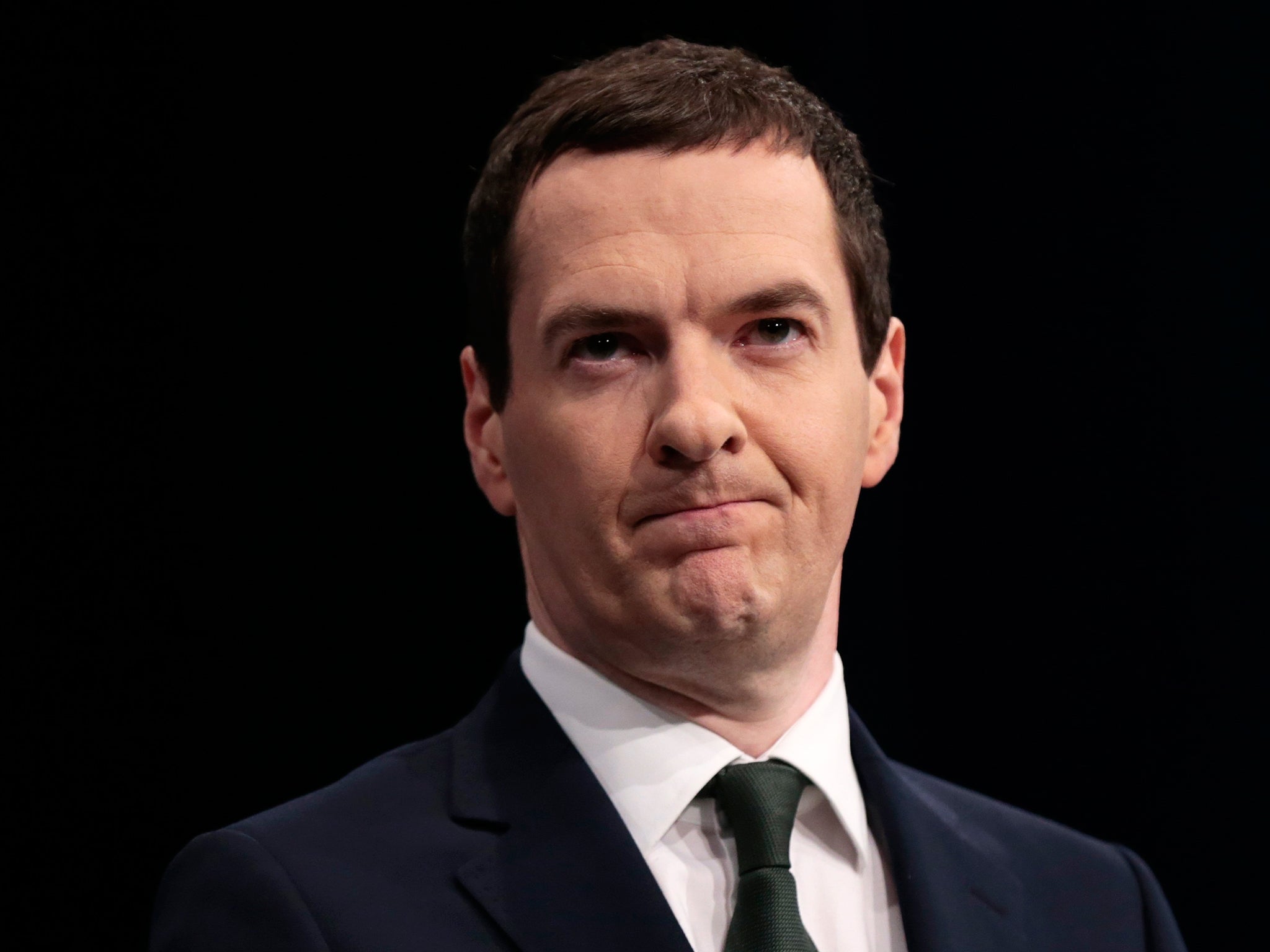George Osborne delivered fresh setback by slowing economy
GDP growth in the third quarter of 2015 eases to 0.5 per cent

George Osborne suffered a second setback in as many days as the UK economy shifted down a gear between July and September.
A summer slump for the British building industry and a lingering recession among manufacturers slowed the pace of growth to 0.5 per cent over the quarter, according to the first estimate from the Office for National Statistics (ONS). That was more sluggish than expected and well below the 0.7 per cent rate between April and June.
The economic setback for the Chancellor came after his fiscal plans were dealt a blow by the House of Lords, which voted down hugely controversial proposals to cut working family tax credits on Monday evening.
Lower growth was down in part to the worst quarter for builders in three years, as construction output – although volatile – slid 2.2 per cent. Manufacturing output also fell 0.3 per cent, its third successive quarter of decline.
For now, the UK’s dominant services sector – accounting for more than three-quarters of output – is driving the economy, with growth of 0.7 per cent over the quarter. Shoppers also have more money in their pockets thanks to low fuel and food prices pushing inflation into negative territory. But the ONS estimates underline the increasing difficulties faced by UK companies as worries over China’s economy weigh on global markets, while a strong pound hits exporters.
The Chancellor said there were “clear global risks and there is still much more to do to fix our economy”. But he was lambasted by trade unions, which highlighted the woes of the UK’s steel industry, where thousands of jobs are at risk. Unite’s assistant general secretary, Tony Burke, said: “These figures highlight an unbalanced recovery which is based on debt-fuelled consumer spending and an over-reliance on the services sector. Osborne’s rhetoric of recovery is becoming more and more divorced from reality.”
The UK economy was the fastest growing in the G7 group of leading nations in 2013 and 2014, as it made up some of the ground lost after the financial crisis. But the International Monetary Fund recently forecast growth would slow to 2.5 per cent this year.
The pound eased half a cent against the dollar as the City bet that the softer growth figures would give the Bank of England’s Monetary Policy Committee another reason to hold fire on raising interest rates. Most experts do not expect the MPC to act until at least the middle of next year.
Simon Wells, HSBC’s UK economist, said the ONS estimate “adds weight to the argument of MPC doves that there is still insufficient domestic demand and price pressures to be sure that inflation will rise back to target.”
Chris Williamson, chief economist at the financial data firm Markit, said its latest clutch of business surveys showed the UK economy entering the final quarter of 2015 growing at a rate of just 0.3 per cent. He said: “There are signs that the fourth quarter could be even weaker. Producers are struggling as weak demand in many overseas markets, notably China and other emerging nations, is being exacerbated by the appreciation of sterling.”
Subscribe to Independent Premium to bookmark this article
Want to bookmark your favourite articles and stories to read or reference later? Start your Independent Premium subscription today.

Join our commenting forum
Join thought-provoking conversations, follow other Independent readers and see their replies